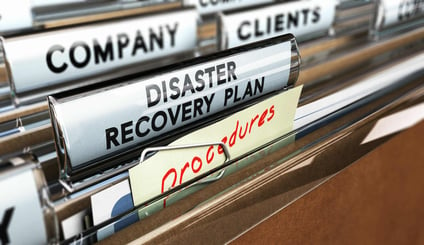Need Tailored Business Continuity Insights?
Contact Us Now for Personalized Guidance!
Just like athletes, business continuity practitioners need to be mentally tough in order to perform well in the face of the many stresses that go with their role. In today’s post, we’ll look at some of the factors that make business continuity uniquely stressful and share some tips to help you execute at a high level even when you’re under pressure.
Related on BCMMETRICS: The Human Factor: Optimizing Yourself and Your Business Continuity Team
If there’s one thing you can say for sure about the Super Bowl this weekend, it’s that it will feature exceptional athletes and coaches striving to perform to the best of their ability under great pressure. The team that does the best job of maintaining its poise and focus will probably win.
In business continuity, we talk a lot about the need to make our organizations resilient, but we must also be resilient as individuals, leaders, and crisis managers. Just like in sports, our mental robustness will be a big factor in how well we perform.
STRESS IN BUSINESS CONTINUITY
Business continuity is a uniquely stressful field. This will not be news to you if you’ve done it for a while. BC practitioners carry a great responsibility on their shoulders. At the same time, they rarely have a free hand in terms of doing what must be done to protect their organizations. This is a recipe for a Perfect Storm of Stress.
Here are some of the unique stresses BC people have to deal with day in and day out:
- They’re responsible for the ability of their organizations to recover quickly from disruptions of all kinds.
- They’re usually in a struggle to gain enough funding to carry out their mission.
- They have to seek this funding from leadership who commonly regard BC as providing little business value.
- To do their job, they need a lot of help from other departments, who have many competing priorities for tangible and pressing business needs.
- If there are gaps in their organization’s recovery plans, this can prey on their mind night and day.
- There are always gaps in their organization’s recovery plans.
Kermit the Frog used to say it’s not easy being green. It’s not easy being a BC practitioner, either.
UNDER THE GUN
Within a business continuity department, there are many roles and there is room for many types of people. Some BC roles call for more of a crisis-manager mentality and others for a worker-bee approach. Many lower- or mid-level people might be sheltered from the stress by those at the higher levels. However, any BC practitioner who is in a responsible position is likely to face significant stress during a crisis event. For them, their ultimate success or failure is likely to come down not to their technical skills but to their mental resiliency.
To come back to our sports analogy: Tom Brady of the New England Patriots has physical gifts that are good and still NFL caliber, but his mental gifts and preparation are some of the best ever giving him the capability to play at a high level at 41 (old for a professional American football player).
RESPONDING PRODUCTIVELY
There are plenty of good resources available on how to develop mental toughness. I listened to a good podcast on the topic the other day; that’s what got me thinking about the role of mental toughness in BC. It also made me put together this list of ways BC practitioners might benefit by focusing on developing their mental toughness:
- Develop a productive approach to dealing with setbacks. How people respond to difficulties makes or breaks how well they do in stressful, competitive environments. What are some unproductive approaches to dealing with setbacks? Letting failure take control, focusing on assigning the blame, getting emotional, obsessing. What is a productive way? Analyzing what went wrong, correct it, and moving on.
- Make your drills realistic. One of the best ways to develop mental toughness is to get more experience in dealing with pressure situations. Your BC drills are just such a situation. The more realistic they are, the more pressure on the participants, the more practice they will get in dealing with the stress associated with business disruptions. Skip the wacky drill scenarios. Have realistic scenarios that mimic real-world situations and pressures as closely as possible
- Visualize yourself dealing with the problems you might face. Elite athletes visualize various problems and game scenarios as a way of getting mental practice in dealing with them. You and your group should do the same. Your visualizations could take the form of tabletop exercises or brief discussions during team meetings. Ask people what they would do right now if various scenarios happened, whether it was the loss of access to a facility, a cyber attack, or the absence of a third of your workforce due to a pandemic. On a more everyday level, to help you get better at dealing with nonreceptive colleagues and managers, you might visualize them being dismissive of your concerns. You could then get mental practice at not taking their response personally and responding in a productive way, such as by focusing on how your request will benefit the organization.
- Prioritize. Mental toughness and resiliency come down to controlling your focus and efforts so you can perform to the height of your potential. Mentally resilient athletes and others focus on what matters the most and put other things to the side to deal with later when time permits. Learn to separate what really counts right now from things that are important but not critical. Identify your priorities and focus on them. Be logical, suppressing the kind of reactive, emotional response that can lead you into the weeds.
- Maintain perspective. Tough competitors encounter many difficulties because they seek out challenges. But they also keep them in perspective. They know that if some things are challenging, other things are going well. You should maintain perspective as a BCM practitioner. Be cognizant of your program’s gaps, but don’t lose sight of the things you’re doing well. Sometimes it helps to step back so you can see the big picture.
- Be proactive. If you’re in a tough situation, don’t let yourself get paralyzed, and don’t keep taking the same unsuccessful action over and over again because you can’t think of anything else to do. Be creative. If you’re really stuck on something, brainstorm, research the matter, seek other people’s perspectives and advice, or sleep on it (this is different from being paralyzed). Never get too comfortable with doing things one particular way. Get in the habit of making in-game adjustments as the situation requires.
GETTING MENTALLY FIT
The pressure of playing in the Super Bowl is unimaginable, but on the other hand, it’s only a game. The well-being of your entire organization and its stakeholders is riding on what you do. By following the tips above to develop your mental toughness, you can benefit your team, your program, and yourself.
FURTHER READING

Richard Long
Richard Long is one of MHA’s practice team leaders for Technology and Disaster Recovery related engagements. He has been responsible for the successful execution of MHA business continuity and disaster recovery engagements in industries such as Energy & Utilities, Government Services, Healthcare, Insurance, Risk Management, Travel & Entertainment, Consumer Products, and Education. Prior to joining MHA, Richard held Senior IT Director positions at PetSmart (NASDAQ: PETM) and Avnet, Inc. (NYSE: AVT) and has been a senior leader across all disciplines of IT. He has successfully led international and domestic disaster recovery, technology assessment, crisis management and risk mitigation engagements.


